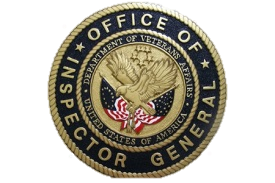So, you’ve just become the compliance officer for your practice! Are you thinking, “”Oh, no!”” or “”Excellent!””?
The compliance officer is responsible for the administration, evaluation and continued development of the compliance program to ensure adherence to applicable state and federal healthcare laws, statutes and regulations. Don’t worry! You are not alone – unless you’re a one-person office. Compliance is everyone’s responsibility. You are the administrator and “”in charge”” of compliance for the practice, with everyone’s help.
Here’s are some of the duties of a compliance officer:
- Design, develop, implement, and monitor a comprehensive compliance program in accordance with the Code of Conduct and Compliance Program Elements.
- Develop and implement policies and procedures necessary to adhere to applicable state and federal healthcare laws, statutes, and regulations.
- Provide monthly report of compliance program activities
- Coordinate, conduct, and facilitate audit functions to identify inappropriate conduct or behavior. Provide subsequent education and materials to implement corrective actions as necessary.
- Coordinate, conduct, and facilitate continued educational programs for providers and personnel that contain focused emphasis on the seven elements of the compliance program.
- Continually revise policies and procedures to reflect current changes in state and federal healthcare laws, statutes, and regulations.
- Annually review all policies and procedures to reflect operational structure changes and other regulatory changes as necessary.
- Continue to develop policies and procedures to enhance the efficiency and effectiveness of the compliance program.
- Investigate all alleged compliance complaints, recommend and implement corrective actions, if necessary, and monitor results for prompt resolution.
- Maintain an ‘open door’ policy to encourage effective lines of communication among all personnel.
What Qualifications Do I Need?
You’re probably concerned that you’re not qualified, but don’t worry. A lot depends on the size of your practice, your practice style, and other factors. The best compliance officers have an eye for detail, knowledge of billing and reimbursement, and great organizational skills. Depending on your circumstances, it’s certainly a position that will include good old OJT—On-the-Job Training. That’s where KMC University comes in. We’re Certified Medical Compliance Specialists (MCS-Ps) who’ve “”been there and done that.”” We can usually make anyone into an excellent compliance officer, with a little training and guidance. If you don’t want to do it yourself, we offer our Virtual Compliance Officer program, where we do it for you. Check it out!
How Much Time Will It Take?
In a typical practice, once the compliance program is set up and active, it will take anywhere from one to four hours per month to execute the job of compliance officer. It depends on the nature of your practice, the number of physicians, and your other job duties. Never fear! We’ll show you how to make it simple!
Whether you’re a newly appointed compliance officer or a veteran, we’re here to help. Contact us with your questions and we’ll point you in the right direction!


The workshop helped us to be better prepared for submitting claims that will not be rejected. Showed us how to find medical review policies and where we could find Medicare resources that tell us exactly how to code a procedure and document.





